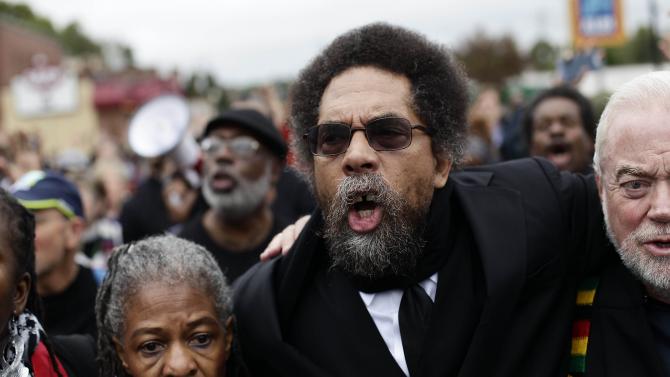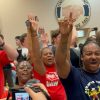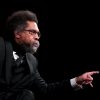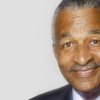
The fiery uprising in Ferguson, Mo., in response to the slaying of unarmed 18-year-old Michael Brown by former police Officer Darren Wilson has arguably signified an end to several things: apathy in the face of grave injustice; “peace” in the face of state-sanctioned killing of black people in America; and, according to Cornel West, “the age of Obama.”
“I think Ferguson signifies the end of the age of Obama,” said West in an unapologetic CNN interview. “It’s a very sad end. We began with tremendous hope and we end with great despair … because we have a Jim Crow criminal-justice system that does not deliver justice for black and brown people, and especially black and brown poor people. It’s very sad that Wall Street executives can go free, drone droppers can go free, torturers can go free, but police who kill our precious children walk free …
“The sad thing is,” he continued, “we have a black president and a black attorney general, we have a black head of Homeland Security, but not one federal prosecution of a case against a policeman killing a black youth under the five-and-a-half years where we’ve had all black folk in place.”
And although West has been maligned throughout President Barack Obama’s time in office—with suggestions that an injured and overinflated ego has been the motive behind many of his scathing Obama critiques—at this point you can’t really say he’s been wrong. Obama’s record of pathologizing blackness, while dismissing the interlocking mechanisms of white supremacy as mere roadblocks, is well-documented. And right now, in this moment of racial reckoning for our nation as another black child killed by another police officer is demonized and revictimized from the grave, Obama seemed more interested, last week, in “pardoning” official White House turkeys Mac and Cheese than in speaking out for justice in Ferguson and beyond.
Even the president’s dialogue at the White House on Monday with carefully selected movement leaders and law enforcement felt forced upon him by a frustrated African-American community looking to him for leadership. And that’s a critical part of the problem. Black America, by and large, is tired of being taken care of behind the scenes and after the fact. Darren Wilson is free, there is no justice for Michael Brown and the president’s call for a peaceful aftermath feels, for many, like salt in an open wound.
How can there be peace if there is no justice?
Many of Obama’s dwindling cheerleaders respond defensively to this charge, or even the slightest critique of how the president has handled Ferguson, by saying, “But what can he do?”
Maybe he could address the anti-black terrorism not-so-subtly embedded in police procedures across the country instead of lamenting about how difficult it is for police to do their job. Perhaps, just as he sent first lady Michelle Obama to Chicago to pay her respects to 16-year-old Hadiya Pendleton, he could discuss the inhumanity of leaving a black body on sizzling concrete for four-and-a-half hours as friends and family looked on. If the United States can stand in solidarity with Nigeria to pressure Boko Haram to “Bring Back Our Girls,” then the president of this country can make a stand that police officers stop killing black children.
West is right. That’s not too much to expect from the first black president and the first black attorney general. If we’ve spent the last several days defending Sasha and Malia Obama from right-wing attacks—rightfully so—then it shouldn’t be too much to expect that our children mean as much to the president as his children mean to us.
If President Ulysses S. Grant could pass the Ku Klux Klan Act of 1871 and have it enthusiastically enforced by then-Attorney General Amos Akerman—to halt the desecration of black bodies—and if President John F. Kennedy could send in U.S. marshals to ensure that James Meredith could safely attend the University of Mississippi, then President Obama can stand before the scores of black citizens who have shown him unwavering support and demonstrate that all black lives matter, not just the ones that meet some arbitrary respectability criteria set forth by white people in America.
Some people may laugh at stories about West’s displeasure over not receiving tickets to the president’s inauguration in 2008, but as with the Rev. Jeremiah Wright, that incident showed us early on that the United States matters more to President Obama than showing solidarity with the people who love him most. This is not surprising: What is best for the racism and classism upon which the United States thrives is rarely what’s in the best interests of black people.
But we deserve more than scraps from white supremacy’s table, and West has never altered that message, despite there now being a black face standing guard over it. West has always fought for us and loved us and has never wavered in speaking truth to power, even when people were calling him a crazed, jealous old man and mocking those of us who support him for not understanding that this is just “how politics work.”
As a nation burns with righteous fury around him, President Obama would do well to take notes from West on how true leadership works.
Kirsten West Savali is a cultural critic and senior writer for The Root, where she explores the intersections of race, gender, politics and pop culture. You can always find her where the good fight is—or good cookies. Follow her on Twitter.















